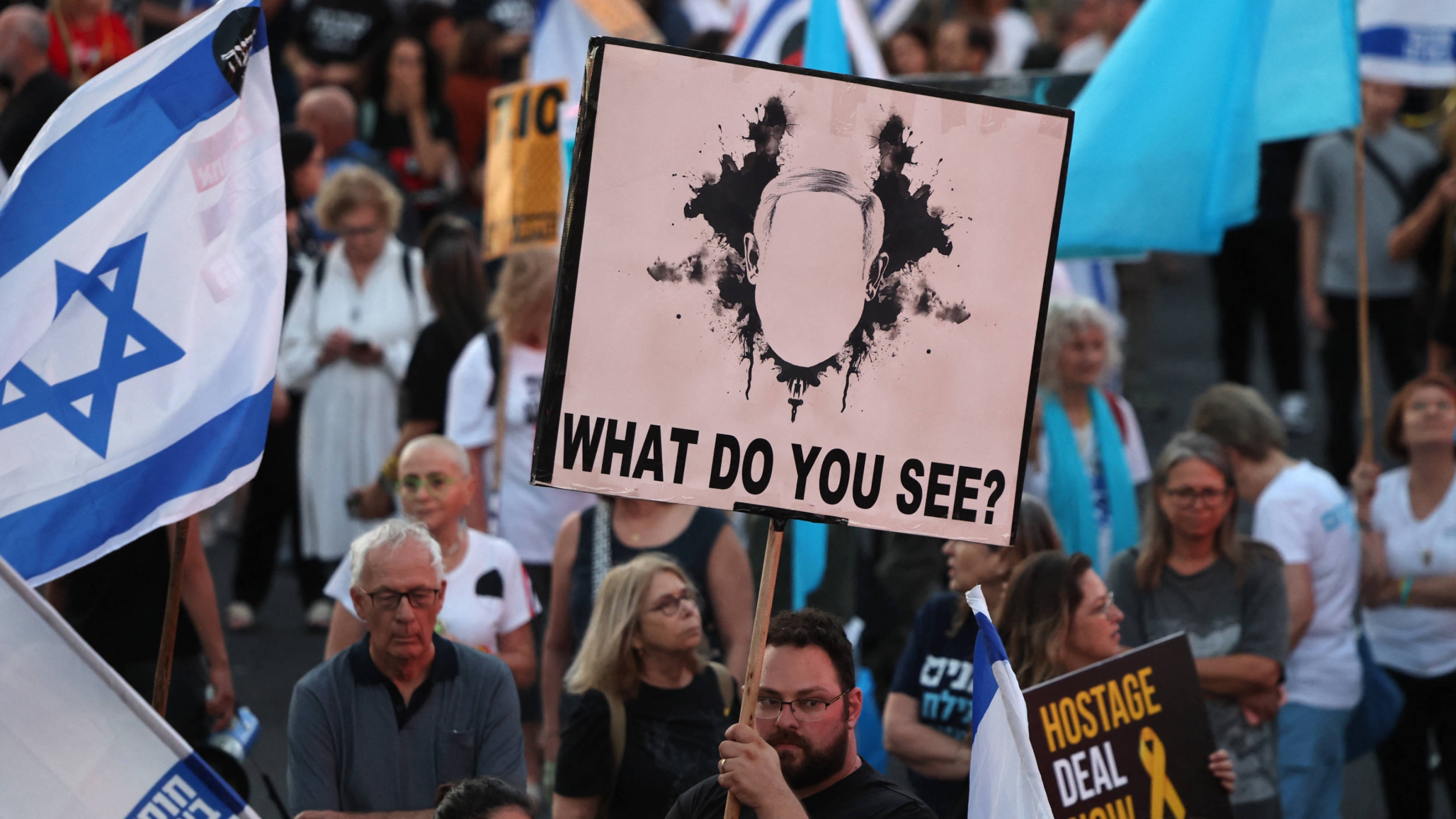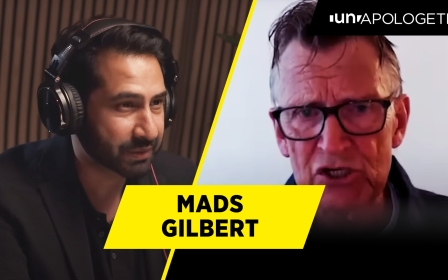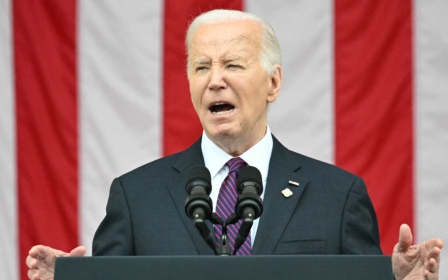Biden's Gaza plan 'not a good deal' but Israel accepts it, Netanyahu aide says

An aide to Israeli Prime Minister Benjamin Netanyahu said on Sunday that Israel had accepted a framework ceasefire deal presented by US President Joe Biden, but described it as flawed and in need of much more work.
Ophir Falk, chief foreign policy adviser to Netanyahu, said Biden's proposal was "a deal we agreed to - it's not a good deal but we dearly want the hostages released, all of them".
"There are a lot of details to be worked out," he said in an interview with Britain's Sunday Times.
Falk added that Israeli conditions, including "the release of the hostages and the destruction of Hamas" have not changed.
On Friday, Biden detailed a three-phase plan submitted by the Netanyahu government to end the war on Gaza, which includes the release of captives by Hamas, the withdrawal of Israeli troops from the enclave, a permanent ceasefire and an exchange of prisoners.
New MEE newsletter: Jerusalem Dispatch
Sign up to get the latest insights and analysis on Israel-Palestine, alongside Turkey Unpacked and other MEE newsletters
Hamas has provisionally welcomed the Biden initiative, saying it "included positive ideas".
Netanyahu meanwhile insisted on Hamas's destruction and the return of the captives before a permanent ceasefire can be put in place.
Falk reiterated Netanyahu's position that "there will not be a permanent ceasefire until all our objectives are met".
Netanyahu is under pressure to keep his coalition government intact.
While many Israelis are urging the prime minister to embrace the deal, his far-right allies, National Security Minister Itamar Ben Gvir and Finance Minister Bezalel Smotrich, are threatening to topple his government if he does.
Netanyahu's right-wing coalition holds a slim majority in parliament and is dependent on his far-right allies.
If the ultra-nationalist parties quit, it could expose Netanyahu to new elections and prosecution on longstanding corruption charges, in addition to scrutiny over security failures that led to the war.
But on Saturday, opposition leader Yair Lapid, who last week accused Netanyahu of prioritising his political survival, was quick to offer his support to the prime minister if he adopted the new ceasefire proposal.
Lapid, whose party holds 24 seats in parliament, said on Saturday that Netanyahu could rely on his party's votes to secure a deal.
"The Israeli government cannot ignore" Biden, Lapid said. "There is a deal on the table, and it needs to be done. I remind Netanyahu that he has a safety net from us for the hostage deal if Ben Gvir and Smotrich leave the government."
A huge demonstration in Tel Aviv on Saturday night, led by families of the captives, called on Netanyahu to strike a ceasefire deal.
Middle East Eye delivers independent and unrivalled coverage and analysis of the Middle East, North Africa and beyond. To learn more about republishing this content and the associated fees, please fill out this form. More about MEE can be found here.





